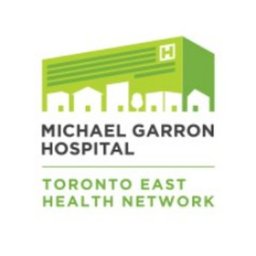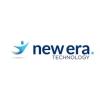Business Analyst
Toronto, ON, CA, Canada
Job Description
OVERVIEW
The Business Systems Analyst, in partnership with other members of the Information technology team, is responsible for system maintenance, project implementations and end user support within Electronic Health Record for applications including patient registration and scheduling, clinical documentation (Physician, Nursing and Allied), order entry and results reporting.
PRIMARY RESPONSIBILITIES
1. User Support
- Provide end-user support - working with members of the Information Technology team as well as vendors to identify and resolve issues and provide system enhancements in relation to application software. Maintain communication with all parties until a satisfactory resolution is reached
Responsible for ongoing support and application availability, including liaison with internal and external support Set up and modification of user accounts and profiles Possess the ability to assess system and application problems quickly and provide solutions in a timely manner. Actively working with the rest of the department in meeting service level agreement targets and reporting requirements Provides proactive support to users of Cerner including but not limited to training/education in order to ensure appropriate, effective usage and understanding of the application. Provide after-hours Clinician support on a rotational basis Assist in educating and communicating with internal and external clients regarding the change of processes and policies
2. Application build, maintenance, upgrades and change management
Design, build and test enhancements and solutions, as required for safety, quality, workflow, performance and usability as aligned with the Information Management strategic plan. Maintain and enhance system e.g. order catalog, system access and view preferences . Monitor and maintain data integrity, including analysis and trouble-shooting for problems that are detected. Define security views for the various occupations. Coordinate the processing, documentation and follow-up of required fixes, enhancements, testing and problem resolution Function as a principal communication coordinator between end users, IT administrators, vendors and Directors in order to identify system needs, modifications and/or issues. Possess knowledge and understanding of all relevant applications and interfaces Configure non-production and production environments with the implementation new software, upgrades and installations Create and execute test plans when implementing new systems to ensure safety, quality and reliability of applications in various test scenarios Build databases, assist with programming interfaces, format screens and views and assist with the conversion of existing data where appropriate Comply with departmental change control procedures Assist in developing system policies and procedures Maintain system documentation as required Support the development of a system/upgrade rollout strategy as required.
3. Project implementations & Process Improvements Opportunities
Identify business requirements in collaboration with users, modeling work processes and information flows to meet in-scope requirements Analyze current processes, utilizing systems methodology and building on any existing current state analysis documentation. Evaluate available options, liaising with clients and vendors to complete milestones and resolve issues Identify and highlight risks to patient safety, quality, resources, project timelines. Modify work processes to mitigate risks Work in partnership with project manager to develop achievable milestones and timelines; monitor and ensure project timelines and goals are met Work with end-users to determine reporting and auditing needs and develop tools to meet those needs Actively participate in benefits measurementsand quality assurance audit activities including assisting managers to develop measurement tools and reporting results to applicable groups Acts as a change agent by identifying process improvement opportunities supporting patient focused care and optimum productivity. Assess clinical area technology and information requirements. Maintain a detailed understanding and working knowledge of Electronic Health Record systems, their functions and integration to other health based information systems
EDUCATION
University degree in IT, Engineering or a related field; or College Diploma. 5 years of relevant experience preferably within a Hospital environment; or an equivalent combination of education and experience.
QUALIFICATIONS
Minimum 5 years' experience in an IT related job with technical experience in problem solving and client technical support, directly related to software, preferably in a healthcare setting. Demonstrated computer proficiency in Microsoft Office products including good working knowledge of MS Access, Excel and Visio. Knowledge and experience of Hospital Information Systems; experience with Cerner preferred. Demonstrated troubleshooting, analytical and problem-solving skills. Flexible, organized and self-directed within scope of responsibility; has initiative and independent judgment. Resourceful with demonstrated skills in facilitation, team work, leadership and process redesign. Demonstrated written and verbal communication skills including the ability to express technical ideas in plain language. Strong people skills, self-starter, motivated individual able to work with minimal supervision Working knowledge and hands-on experience with relational databases. Understanding of clinical and corporate data needs in a hospital setting. Ability to interact with IS and hospital staff, outside suppliers and consultants as necessary. Knowledge on data modelling techniques. Provide evidence of ongoing education (e.g. workshops, seminars, etc.) and upgrading of technical skills and knowledge. Ability to deal with stressful situations in a professional and courteous manner. Good work attendance record required. Must be available for on-call shifts. All employees of Michael Garron Hospital (MGH), a division of Toronto East Health Network (TEHN) [formerly Toronto East General Hospital (TEGH)] agree to work within the legislated practices of the Occupational Health and Safety Act of Ontario. All employees of MGH are responsible to contribute to a transparent culture of patient and staff safety by adhering to and abiding by patient and staff safety policies and procedures set by MGH. * All employees are accountable for protecting the psychological health and safety of themselves and their co-workers through adherence to MGH's policies and practices.
Beware of fraud agents! do not pay money to get a job
MNCJobz.com will not be responsible for any payment made to a third-party. All Terms of Use are applicable.
Job Detail
-
Job IdJD2899682
-
IndustryNot mentioned
-
Total Positions1
-
Job Type:Full Time
-
Salary:Not mentioned
-
Employment StatusPermanent
-
Job LocationToronto, ON, CA, Canada
-
EducationNot mentioned




